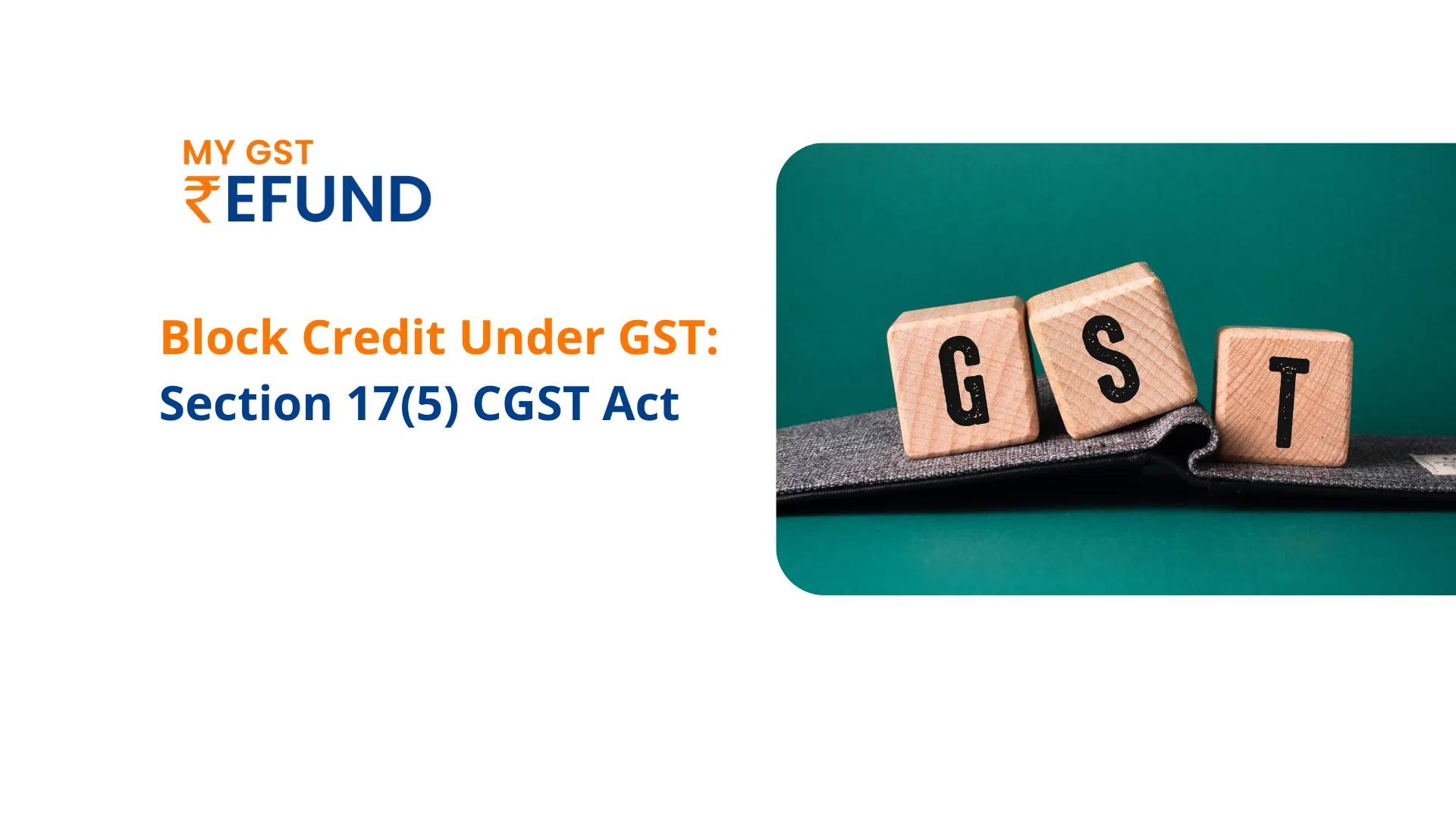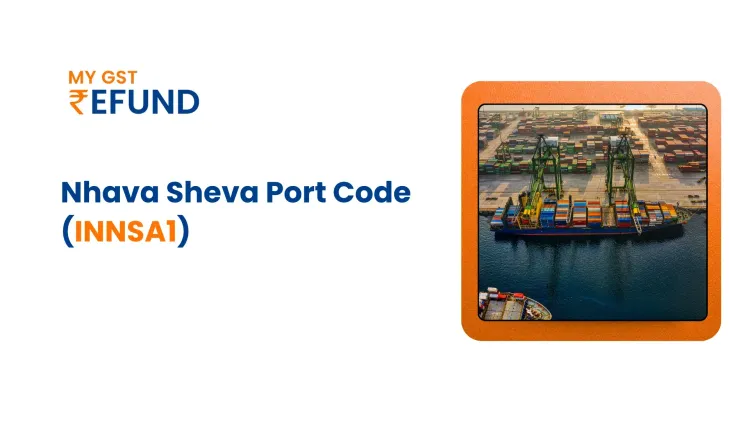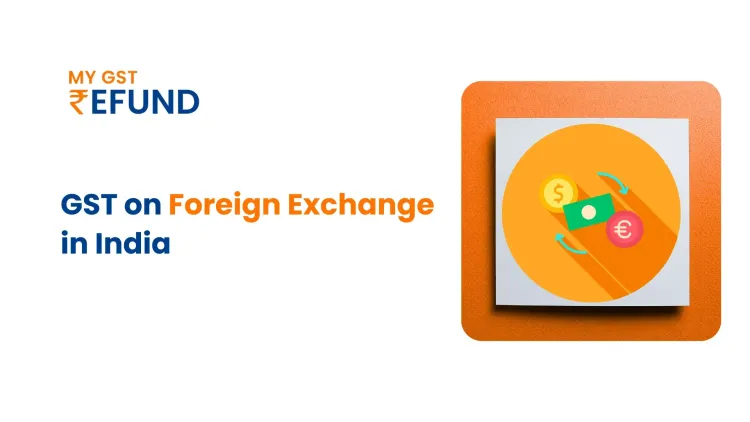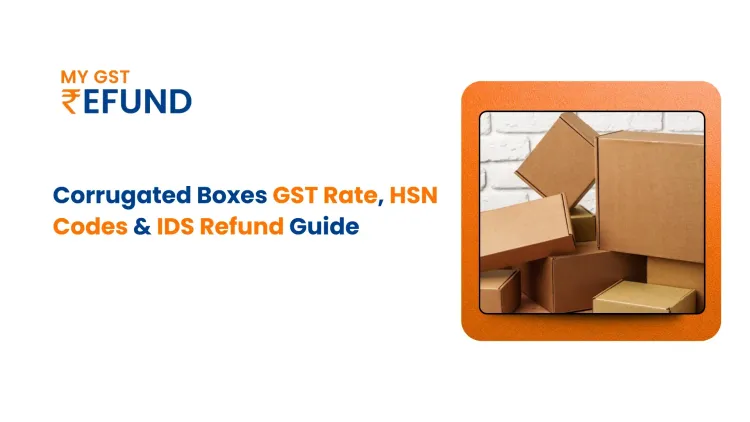Block Credit Under GST: Section 17(5) CGST Act- What it Means and How it Can Impact Your Business
When we talk about the domain of Goods and Services Tax (GST), block credit in GST is a fundamental concept that businesses need to be aware of and comply with for their tax filing. It means specific items or services for which ITC can’t be claimed under Section 17 (5) of the CGST Act. These are necessary restrictions in order to make sure that businesses can only deduct ITC for the expenses directly relating to taxable activities to prevent mistreatment or false ITC claims.
In this article we will explore each aspect of block credit in GST, specifics of Section 17(5) of the CGST act, and how businesses can remain compliant with the GST framework by knowing what actually comes under the blocked credit list under GST.
What is Block Credit Under GST?
Types of expenses in respect of which a business cannot claim Input Tax Credit (ITC) under GST is known as Block credit in GST. The government, under the GST framework, seeks to bring a situation wherein only those purchases on which ITC is claimed should be related to the production of taxable goods and services. According to section 17(5) of CGST Act, there is a specific blocked credit list under GST which lists categories of credits for which ITC can’t be availed even if they paid the tax on the goods or services purchased.
The Blocked Credit List Under GST: Section 17(5) Explained
According to Section 17 (5) of the CGST Act, there is a list of the items and services which, on payment of the tax, the input tax credit cannot be claimed in any circumstances. These restrictions have been discussed by various stakeholders, but compliance can still be a challenge. Below are the primary categories of expenses that fall under blocked credit under GST:
1. Motor Vehicles and Conveyances:
Motor vehicles and conveyances are one of the crucial categories amongst the blocked credit list under GST. Input tax credit cannot be claimed for the purchase of motor vehicles, except in certain circumstances:
- It is used for the transport of goods.
- It comprises the transportation of passengers and is a part of commercial activity on the vehicle.
- It provides training for driving or flying the car.
The reason for implementing this restriction is to stop businesses from claiming credit on any purchase that is used for personal or nonbusiness nature such as cars, bikes and similar other vehicles.
2. Food and Beverages, Outdoor Catering, and Club Memberships:
Under GST, expenses of food and beverages, outdoor catering and club memberships are other prominent categories of credit which are blocked. These services incurred in the course of doing business are blocked from input tax credits even though they might have some relation with business functions like employee welfare.
For illustration, if a company incurs expenses in providing food to employees during an official event, those amounts would be eligible for ITC. Still, expenses incurred on food and beverages for personal consumption are disallowed.
3. Workwear, Uniforms, and Personal Protective Equipment (PPE):
Under block credit in GST, goods like workwear, uniforms and PPE used for the personal use of employees cannot be claimed for ITC if such items are not needed for performing the business operations (for example, uniforms worn out by workers of some specific sectors).
4. The construction of immovable property:
Expenses related to the construction, in the nature of land and buildings, of an immovable property are blocked for input tax credit under the provision of Section 17(5). But if the construction is for business purposes, that is, a business constructs a warehouse, factory or office for the business taxable operations such a provision does not apply.
For example, if a business builds an office block meant to conduct business, then the input tax paid on the office block building may not be blocked. Still, if the building of residential homes or other non business related property was made, then the credit for the same will be blocked.
5. Rent-a-Cab Services:
Under GST’s list of blocked input tax credits, rent-a-cab expenses for most businesses are viewed as expenditures. It means that companies cannot take ITC on rental charges of any passenger car unless the service is used in a taxable business activity. For instance, cab rent for personal use or for employee transport is not eligible for ITC.
6. Travel and Hospitality Services:
Also blocked is ITC on travel services, hotel accommodations and hospitality services for which GST has been paid. These include airfares, hotel stays and other employee travel-related costs not directly linked to business travel, such as travel to a business meeting or event.
This is true. However, travel expenses for business are not included in terms of ITC, but making trips for the purpose of attending conferences or meeting clients, etc., could be included in cases.
7. Insurance Premiums on Life and Health Policies:
So, in the blocked credit under the GST list, we have the premiums for life insurance and health insurance policies. Though these policies can be helpful for businesses, they can claim ITC only if the insurance is for the employees, otherwise they fall in the employee welfare category.
Goods and services for personal use.
Blocked credit under GST refers to any goods or services purchased for personal use, not liable for tax in taxable business activities. For example, if a business owner purchases personal items like a smartphone that is not for business purposes, tax cannot be reclaimed on that purchase.
Practical Example of Block Credit Under GST:
For the sake of understanding, let’s take an example and see how blocked credits under GST work.
Scenario: A construction company, ABC Pvt. Ltd., purchases a work vehicle with which to transport construction materials. The company even spends on employee food when they are on-site visits.
Blocked Credit: ABC Pvt. Ltd. may be allowed to claim ITC on the vehicle as the work vehicle is being used for the transport of construction goods (a taxable supply).
Non-Blocked Credit: In fact, the company is not able to claim a credit against expenditure on employees’ food, which falls under a blocked credit list under GST, unless it is for a specific taxable business activity.
Compliance Tips for Businesses to Avoid Blocked Credit Issues:
Businesses must learn the rules related to block credit under GST. Here are some tips to ensure compliance:
- Thorough Record-Keeping: Keep good records of your purchases and how these relate to your taxable business activity. This will help you not to confuse the GST audit and to indicate only the eligible credits.
- Evaluate the Purpose of Purchases: Make sure you always consider whether the purchases are for business use or personal use. This will also make clear to you if the goods or services are subject to blocked credit.
- Review GST Invoices: Make sure that your invoices clearly explain what they are for. To avoid inadvertently claiming blocked credits, businesses should categories expenses correctly.
- Consult a Tax Expert: The blocked credit list under GST is a complex subject; consulting with a GST expert or legal advisor of your firm would help you to make sure that you comply with the law and that you avoid unnecessary tax liabilities.
- Regular Audits: Perform periodic reviews of your credit claims and ensure your ITC claim is not being done inadvertently for the ITC prohibited expenses.
Conclusion
The block credit prescribed in Section 17(5) of GST, allows businesses to claim Input Tax Credit on only expenses which directly add to the taxable supplies or business operations. The companies that stay pure by following blocked credit lists under GST avoid legal issues and remain compliant with the GST framework.
Regular checking on purchases, taking professional help and keeping a tab on the latest amendments to GST law will help you understand what qualifies for ITC. Abiding by these regulations will keep your business free from any threat of penalty or audit related to blocked credit under GST.
FAQs
What is Block Credit Under GST?
Input tax credit under GST is called blocked credit, which means that GST-registered businesses cannot claim input tax credit on specific goods or services (as detailed under Section 17(5) of CGST Act) like vehicles, food or for constructing a new building.
Does Reversal of Blocked Credit Under GST Attract Interest?
The GST rule is that if you reverse the credit-blocked items, then you do attract interest, and that interest is at 18% a year if it is after the due date.
How to Identify Block Credit Under GST?
It checks purchased goods or services against Section 17(5) to identify blocked credit. However, if these items are in vehicles, food or construction, they cannot be claimed as ITC under GST.
Also Read :Understanding Form GST DRC-03A
Related Posts








